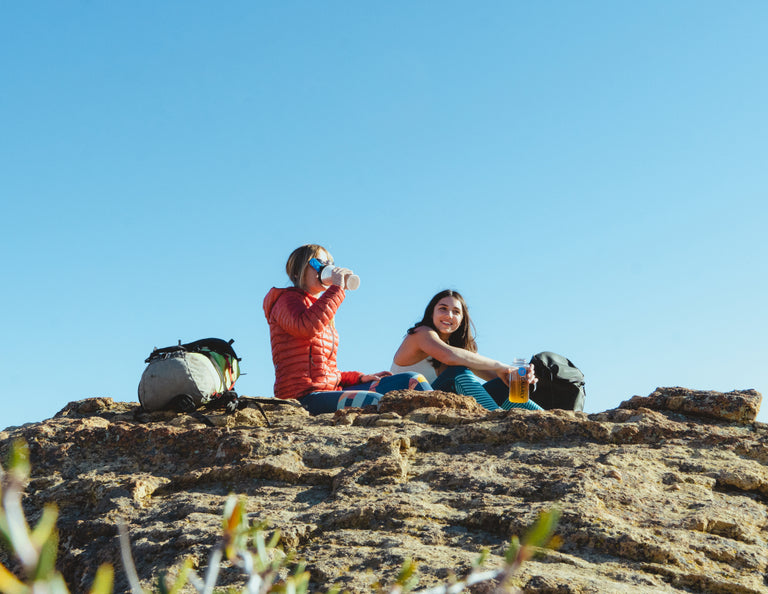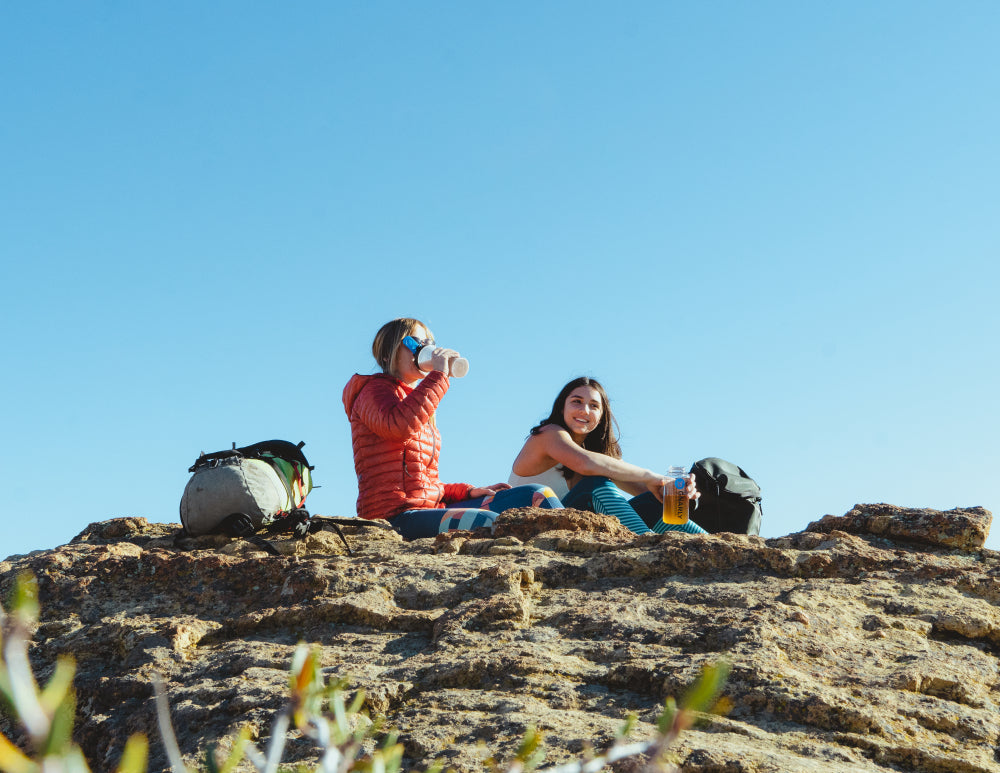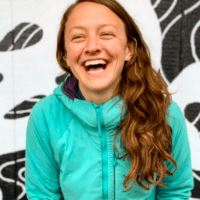I can vividly remember the first time I thought about myself as bigger than others around me. I was in second grade, walking next to a classmate toward the bus after school.There is nothing specific that happened; I just distinctly remember looking over at her and thinking, ‘Wow, I’m way bigger than her, and therefore, inferior.’
Like most women in the United States, I was told from an early age that skinny is best, that my worth was directly correlated to how attractive I could make myself. In high school, I played basketball and volleyball, exercising during practice six days a week and then starving myself during the day. When I quit those sports, I started running all the time to get to a more ‘acceptable’ weight. High school was also when I tried my first fad diet, the cabbage soup diet. I remember a classmate telling me that I looked skinny and feeling an overwhelming sense of achievement.
During college, I became bulimic. I tried to make up for my uptick in caloric intake from booze and dining hall food with purging and excessive exercise. At the same time, a close family member died, and I was diagnosed with depression for the first time. I saw my food intake and exercise ability as two of the only ways I could control my life.
While my relationship with my body and food improved after college, the disordered eating behaviors just took on new forms. I stopped purging after eating, but I still wouldn’t eat dinner some nights if I thought I ate too much during the day. I started to eat dinner, but there were still nights that I would binge on food until I was ready to burst. I stopped binging on food, but I started to realize I wasn’t fueling myself correctly for the sports I was partaking in. These insidious, deeply rooted beliefs about my value and my size kept coming up again and again.

When I found climbing in the fall of 2015, I wasn’t in the best head space. I saw it as another activity I could use to exercise and lose weight. I saw the climbers around me and felt like I needed to be smaller to be a ‘real climber.’ And I had a difficult time feeling like I was on display while climbing. Like folks were watching me, critiquing my body, and judging me. This was mostly in my head, but I couldn’t help but feel like some of this had to be true.
Through slow, painstaking progress in climbing, I started to see the sport as a place I could find strength and resilience, instead of a place that showed me all of my perceived weaknesses and failures. But it wasn’t until I got sober in February of 2020 that I really understood how deep my eating disorder went.
When I stopped drinking, I naively thought that all of my problems would be solved immediately and magically. But through my new mental clarity, deeper issues started to rear their ugly heads. I was slowly realizing that my body wasn’t getting what it needed to perform at its highest level - emotionally, physically, and spiritually.
Through my first year of sobriety, I had a tumultuous relationship with climbing. I still saw it as a sport that wasn’t for me, that I could never get any better at, never overcome my fear. I pushed it away for months at a time, hoping small breaks from it would make me love it like I wanted to. I focused on trail running, hiking, or just doing whatever movement felt good that day (which was a big win in itself).

While I was focused on trail running and training for a race in early 2021, I kept getting injured and achy joints, and I was feeling like the movement was punitive rather than healthy. So I stopped training and decided not to do the race. I took a few weeks to reflect and try to understand where I was going wrong. And it came down to two things: lack of rest and lack of proper nutrition and fueling.
I was still looking at food and supplements in a problematic way. I saw it as a chore to prepare good meals rather than an act of self care. I didn’t want to eat a lot because I wasn’t running anymore, so my caloric output was much lower. I was scared to gain weight by adding more into my diet.
I was getting tired of having the same internal conversation with myself over and over. When was I going to come to a better place with my body? When was I going to stop berating myself for eating the ‘wrong’ things? When was I going to allow my body to rest?
The final capstone of this journey came in an unexpected way. I was still in a tumultuous mindset with climbing, but myself and a few friends went up to Ten Sleep, Wyoming for a five day trip to celebrate some birthdays and stay at the storied Rock Ranch. The trip became a repetitive version of others taken in the past - angry at myself, frustration over my lack of ability to overcome fear, and giving off bad vibes to all.
That night, they asked gentle questions about what it was that upset me during climbing, offering slight recommendations here and there. But the big gift they gave me was one of acceptance. I had this idea in my head that I couldn’t hang, I wasn’t good enough, and I was holding them back. They lovingly told me, ‘We don’t care that you climb. We just want to have fun with you while we’re out there.’
We all have these moments. Someone says something so simple, so rational to you and you finally get it. It couldn’t be understood any earlier or any later in your life. You need to hear it right at that moment. And for me, that was it. I finally felt like I could be the climber I was. I didn’t feel like I needed to be anything else, because of so many years of work and the loving comments from friends who cared.
A switch flipped in my brain after Ten Sleep. I was finally feeling excited to climb. I wanted to go to the gym. I wanted to practice falling. I wanted to learn new techniques.
And now, I finally have the brain space and emotional availability to dive head first into my relationship with food. I am ready to come to terms with the fact that I need to eat more, and definitely need more protein on a daily basis, especially being a vegetarian. The healing I had experienced and the ability to finally be the athlete I wanted to be led me to conquer the other big things.
And while my overall story is filled with tears, moments of true sorrow, and complex emotions, I know deep down that I wouldn’t have been able to get to this place, at 30, if I didn’t experience all that came before. I wouldn’t have come to this mindset, actively excited to fuel my body and give it what it actually needs to fuel good and perform. I have deep empathy for my younger self, but now, I’m looking forward to all the possibilities ahead.




